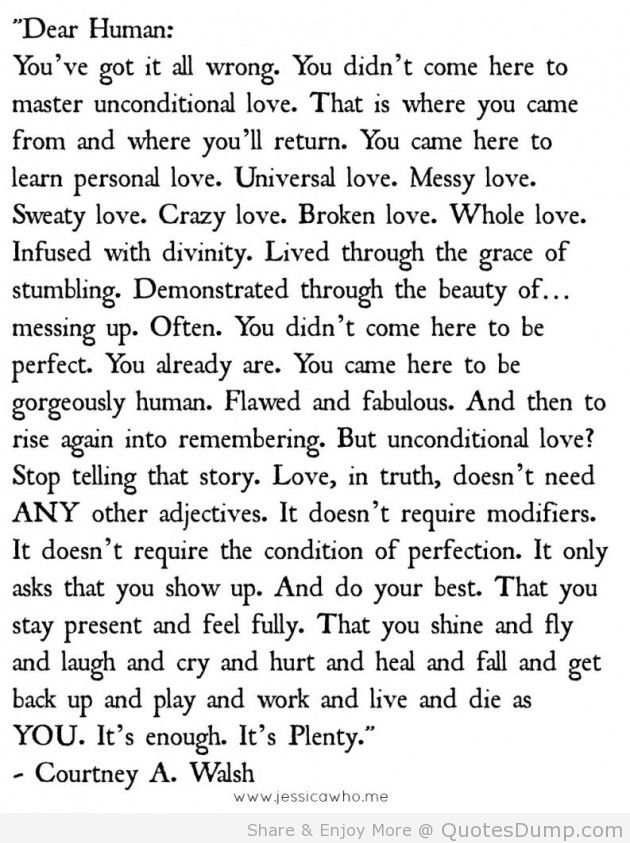
I am enamored with the medieval code of conduct when it comes to relationships – the importance of chivalry. I love the idea of knights, castles, and battling for a woman’s affection. The gowns, the corsets, the Lancelots…
Then I shake myself from my reverie, and realize that women were often treated like property in those days – like a horse, and sometimes at a much lower value than a horse. I remember that it was generally considered OK to have a mistress, and that women had to accept this. Women had to be dainty, delicate, and proper.
Fantasies of true love haven’t been fair on men either. They’re supposed to be heroic and offer endless declarations of love while still maintaining their manliness. They have to be romantic, sweep women off their feet, and not show any weakness.
I’m not saying that happy, romantic, fairy-tale worthy relationships are not possible. I just think we need to let go of unhealthy notions about love that do more harm than good – beliefs about ourselves, our partner, and relationships in general that make it hard to develop a healthy connection with someone…let alone maintain our own sense of self. Here’s what I mean:
These are some disconcerting statistics from our Relationship Attachment Style Test on Queendom:
Women
- 8% agree with the following: “If I’m not in a relationship, I am nobody.”
- 10% assume total responsibility for their partner’s happiness.
- 12% would not leave an abusive relationship.
- 14% would do anything to keep their partner because they don’t believe that they’ll be able to meet anyone else.
- 17% would rather bite their tongue and suffer in silence than risk being rejected by standing up for themselves.
- 19% said that their self-worth depends entirely on their partner’s view of them.
- 20% are afraid that their partner will leave if they express what they truly think and feel.
- 21% constantly worry that their partner will leave them.
- 26% cling to their relationships as though their life depended on it.
- 26% are drawn to people who have serious problems (e.g. addictions, personal issues).
- 33% disregard their preferences in order to please others.
- 49% said that they desperately want their partner to need them as much as they need their partner.
Men
- 14% believe that they have to be whatever their partner wants them to be, or they will be rejected.
- 20% get nervous when a partner wants a more emotionally-intimate relationship.
- 22% assume total responsibility for their partner’s happiness.
- 24% are afraid that their partner will reject them if they were to express how they really feel.
- 25% constantly worry that their partner will leave them.
- 26% said that their self-worth depends entirely on their partner’s view of them.
- 26% would do anything to keep their partner because they don’t believe that they’ll be able to meet anyone else.
- 27% want their partner to rely entirely and exclusively on them.
- 27% feel that they’re better off not getting close to someone so that they won’t get hurt.
- 36% have a hard time trusting their partner.
- 50% find it hard to let their walls down.
There are a lot of unhealthy beliefs and behavior patterns revealed in these stats. For example:
1) Both men and women will do anything they can to avoid getting hurt which, ironically, often leads to hurt and rejection in the long-run. Women tend to cling, men tend to distance themselves.
2) For a lot of people, their self-esteem is tied into their relationship status. Which could mean that they’ll stay in an unhappy relationship just to have someone to come home to – a less painful, or at least less humiliating alternative to being single. Reality check: The “I can’t live without you” theme of love songs is not sweet or romantic. It’s sad. It’s unhealthy. Those who think that they are nothing without a partner will still feel like a nobody even with a partner. No one can make us whole if we think we’re broken, damaged goods.
3) Men want to be able to open up, but they have their misgivings, mixed with a lot of fear. Telling someone how you feel is like ripping open your chest to reveal your gooey insides in all their vulnerable glory. Disclosure requires exposure. Exposure requires a willingness to accept rejection. Not so easy is it?
4) Dependency is not love. It’s fear masquerading as love. Wanting a partner to depend on us offers a sense of control over them and the relationship as a whole, but all it does is reflect our own desperation – and equally unhealthy dependency on them.
5) We’re made to believe that we have to put others first. Your needs, opinions, and desires must become secondary to those of others. So what happens? You hold back. You don’t tell your partner about things that are bothering you, or when you disagree. This in turn causes a build-up of resentment and either ends in a big, explosive fight, or the inevitable demise of the relationship. I am not encouraging selfishness, but rather, “self fullness”:
The distinction between selfishness and self fullness is that self fullness is being true to one’s needs, opinions and perception without worrying what others think and understanding an important difference that when we disappoint some people we are actually allowing them to find their own strength.
– Carol Gilligan
Queen D



I Love You, Warts And All | Queendom Blog
[…] cliché that people these days care more about money than social values, and destroyed some rather unhealthy beliefs about relationships. In time for Valentine’s, I wanted to look at the importance of authenticity in relationships […]